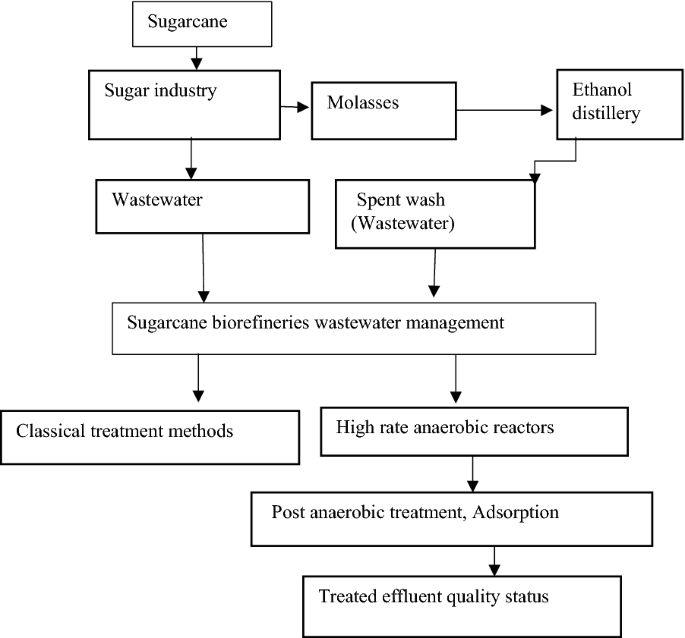Discover the Ingenious Benefits of Products From Sugarcane for Lasting Living
Sugarcane has actually emerged as an essential source in the pursuit for sustainable living. Its diverse applications extend eco-friendly packaging, eco-friendly power, and much healthier food choices. As industries seek environment-friendly options, sugarcane's versatility provides encouraging solutions. Nevertheless, real possibility of sugarcane extends past its existing usages. Exploring its innovative advantages can disclose new pathways toward a more sustainable future. What other possibilities might this remarkable plant hold?

The Increase of Sugarcane as a Lasting Source
As global awareness of ecological issues grows, sugarcane has actually become a famous lasting resource. This functional crop uses a range of benefits that add to eco-friendly methods. Sugarcane is an eco-friendly resource, qualified of thriving in varied climates while taking in carbon dioxide, therefore mitigating greenhouse gas exhausts. Its rapid growth cycle permits for regular harvesting, leading to a continual supply of raw material.Additionally, sugarcane growing usually needs less water compared to other plants, making it an efficient choice in water-scarce areas. The spin-offs of sugarcane, such as bagasse and molasses, can be repurposed for different applications, decreasing waste and advertising circular economy principles. Moreover, developments in farming techniques have actually resulted in more lasting farming methods, further enhancing sugarcane's environmental account. As customers significantly seek sustainable alternatives, sugarcane sticks out as a sensible choice for those devoted to minimizing their ecological footprint.
Biodegradable Packaging Solutions
Just how can biodegradable product packaging options transform the way customers approach sustainability? By utilizing sugarcane-based products, these ingenious services use a compelling option to traditional plastics. Biodegradable product packaging made from sugarcane breaks down normally, considerably reducing landfill waste and greenhouse gas emissions. As customers end up being increasingly familiar with their environmental effect, the demand for lasting packaging remains to rise.These sugarcane-derived items not just serve sensible functions but also straighten with eco-conscious customer worths. They offer a substantial means for businesses and individuals to add to a circular economy, advertising resource performance and lessening environmental footprints. In addition, as industries embrace biodegradable choices, they cultivate a culture of sustainability that reverberates with an expanding market seeking liable choices.In essence, biodegradable product packaging services from sugarcane stand for an important action forward in sustainable methods, equipping consumers to make eco-friendly choices without giving up benefit or quality.
Renewable Power Generation From Sugarcane
A significant part of eco-friendly energy generation can be stemmed from sugarcane, showcasing its adaptability past traditional agricultural uses. Sugarcane biomass, including bagasse and leaves, is a potent resource for bioenergy production. This biomass can be converted into biofuels such as ethanol, which offers as a cleaner alternative to nonrenewable fuel sources. In addition, the combustion of sugarcane results produces heavy steam and electricity, offering an energy resource for sugar mills and nearby communities.The farming of sugarcane additionally adds to carbon sequestration, as the plants absorb co2 during their development cycle. By using sugarcane for power, waste is decreased, and sustainable techniques are motivated. This renewable resource technique not just sustains power demands but likewise advertises country growth, developing jobs in bioenergy markets. On the whole, sugarcane sticks out as an essential player in the shift to sustainable energy services, aligning with global initiatives to lower carbon footprints.

Eco-Friendly Textiles and Fabrics
Eco-friendly textiles and textiles stemmed from sugarcane present a promising choice to traditional products. These biodegradable choices not only decrease ecological influence but additionally provide durability and efficiency similar to conventional textiles. Lasting manufacturing procedures additionally enhance their allure, making them an essential part of a lasting way of life.
Biodegradable Material Alternatives
Why is the change toward eco-friendly fabric choices vital for lasting living? The raising understanding of ecological degradation has actually motivated a look for alternatives to traditional textiles, which commonly add to air pollution and waste. Biodegradable fabrics, stemmed from renewable energies such as sugarcane, supply an appealing option. These materials disintegrate naturally, decreasing land fill buildup and minimizing environmental effect. Additionally, they can assist lower carbon footprints and reliance on fossil gas. As customers come to be more eco-conscious, the demand for sustainable textiles grows, encouraging manufacturers to invest and innovate in biodegradable choices. This modification not just sustains sustainable techniques yet likewise promotes a circular economic situation, paving the way for a more responsible approach to style and textile manufacturing.
Durability and Efficiency
Sturdiness and efficiency are vital elements when reviewing environment-friendly textiles and fabrics. Sugarcane-derived materials demonstrate impressive stamina and resilience, making them suitable for numerous applications. These fabrics typically display remarkable moisture-wicking homes, which enhance convenience in everyday wear. Additionally, their all-natural fibers add to breathability, ensuring that garments continue to be wearable and fresh also in demanding problems. The performance of sugarcane-based materials encompasses their resistance to tear and wear, enabling products to preserve their integrity over time. These green fabrics can pop over to these guys be treated to improve UV protection and discolor resistance, meeting the functional demands of consumers without jeopardizing sustainability. Ultimately, sugarcane fabrics supply a harmonious equilibrium of toughness and efficiency, attracting eco conscious people.
Lasting Manufacturing Procedures
The outstanding longevity and performance of sugarcane-derived More Bonuses textiles are matched by lasting manufacturing procedures that focus on environmental responsibility. These procedures use eco-friendly resources, decreasing dependence on nonrenewable fuel sources and minimizing carbon footprints. By using the byproducts of sugarcane cultivation, manufacturers can create eco-friendly fabrics while advertising waste decrease. Advanced strategies, such as water-efficient dyeing and eco-friendly therapies, even more enhance the sustainability of these fabrics. In addition, using safe chemicals assurances that the production process does not hurt communities or human health and wellness. This commitment to sustainability not only attract eco conscious consumers yet likewise sustains neighborhood economic situations by advertising sustainable farming methods. In general, sugarcane-derived textiles stand for a considerable step in the direction of a greener future in the fashion business.
Sugarcane-Based Biofuels and Their Effect

Sugarcane-based biofuels have become a substantial alternate power resource, supplying a sustainable solution to the globe's expanding energy needs. These biofuels, stemmed from the fermentation of sugarcane juice or molasses, present an even more lasting option contrasted to nonrenewable fuel sources. Their manufacturing process creates lower greenhouse gas discharges, adding to climate adjustment mitigation efforts.Additionally, sugarcane biofuels can boost energy protection by expanding power sources and decreasing dependancy on imported oil. The farming of sugarcane also advertises rural advancement, developing jobs and stimulating local economies.However, issues regarding land use and food competition continue, as increased biofuel production might impact food supply chains. Lasting agricultural practices are necessary to stabilizing these contending passions and making sure that biofuel production does not weaken food security. In general, sugarcane-based biofuels stand for an appealing method for a greener power future, provided that their social and environmental ramifications are very carefully managed.
Healthier Alternatives: Sugarcane in Food Products
While lots of customers look for much healthier choices in their diet plans, sugarcane products provide a healthy option to refined sugars and sweetening agents. Originated from the natural extraction of sugarcane juice, these items preserve vital nutrients, including minerals and vitamins, that are usually shed in refined sugars. Sugarcane consists of anti-oxidants and dietary fiber, adding to overall wellness and wellness.Many health-conscious people are transforming to sugarcane syrup and jaggery, which supply a reduced glycemic index contrasted to traditional sugars, making them ideal for those taking care of blood glucose levels. Additionally, sugarcane-derived sugar can boost the flavor of various recipes without the damaging effects associated with synthetic additives.This shift towards all-natural sweetening representatives not just promotes far better nutritional options but additionally lines up with sustainable living techniques, as sugarcane is a renewable energy. Therefore, sugarcane items are emerging as positive choices in the domain name try this site of foodstuff.
The Future of Sugarcane in Sustainable Advancements
The future of sugarcane is poised to include ingenious applications that expand beyond conventional uses. Its possible as a resource for naturally degradable product packaging options and renewable resource resources highlights its role in lasting methods. Exploring these innovations could substantially influence environmental conservation and resource administration.
Biodegradable Product Packaging Solutions
A boosting number of business are transforming to naturally degradable product packaging solutions stemmed from sugarcane as an appealing alternative to traditional plastics. These cutting-edge materials, typically made from sugarcane fibers and bioplastics, decompose normally, decreasing the long-lasting ecological effect related to traditional plastic waste. By utilizing renewable energies, sugarcane-based product packaging contributes to a more sustainable manufacturing cycle, lining up with worldwide initiatives to deal with air pollution and environment modification. Additionally, these services frequently maintain the longevity and functionality needed for various applications, from food containers to delivery products. As consumer demand for environment-friendly choices expands, companies embracing sugarcane product packaging not only enhance their brand image but also play a pivotal function in fostering a round economy, leading the means for a greener future.
Renewable Resource Sources
Eco-friendly packaging services are just one element of the more comprehensive possibility of sugarcane in promoting sustainability. Another significant application hinges on renewable resource resources. Sugarcane is a functional plant that can be used to produce biofuels, such as ethanol, which works as a cleaner choice to fossil gas. The fermentation procedure of sugarcane juice returns ethanol that can power vehicles and generate power. Additionally, the by-products of sugarcane handling, like bagasse, can be used to create biomass energy, providing a lasting and effective method to harness power. This double duty as both a resource of biofuel and biomass underscores sugarcane's possibility in minimizing carbon emissions and supporting a shift to a more lasting energy landscape in the future.
Frequently Asked Concerns
How Is Sugarcane Gathered Sustainably?
Sugarcane harvesting can be lasting via techniques like hand-operated cutting, which lessens soil interruption, and making use of machinery that minimizes fuel intake (Products From Sugarcane). Crop turning and integrated pest management further boost environmental health and wellness and advertise long-term dirt fertility
What Are the Environmental Effects of Sugarcane Farming?

Can Sugarcane Products Be Recycled?
The question of whether sugarcane products can be recycled reveals a positive overview. Numerous sugarcane-derived materials, such as bioplastics and packaging, are developed for recyclability, adding to a much more lasting waste management technique within ecological considerations.
Exist Any Type Of Downsides to Using Sugarcane-Based Products?
The disadvantages of utilizing sugarcane-based items consist of possible land usage competition with food crops, challenges in large manufacturing, and issues regarding the environmental impact of monoculture farming practices, which can diminish biodiversity and dirt wellness.
Just How Does Sugarcane Farming Affect Local Communities?
Sugarcane farming effects local communities by providing employment possibility and boosting neighborhood economic climates. It can likewise lead to land conflicts and ecological issues, impacting farming practices and community wellness, necessitating a well balanced strategy to growth. Advancements in farming methods have actually led to even more sustainable farming methods, further boosting sugarcane's ecological account. In addition, the burning of sugarcane by-products creates steam and electrical energy, giving a power resource for sugar mills and neighboring communities.The cultivation of sugarcane additionally adds to carbon sequestration, as the plants soak up carbon dioxide during their development cycle. By making use of sugarcane for energy, waste is reduced, and sustainable methods are encouraged - Products From Sugarcane. Sugarcane includes antioxidants and dietary fiber, adding to general health and wellness and wellness.Many health-conscious individuals are turning to sugarcane syrup and jaggery, which give a lower glycemic index compared to standard sugars, making them ideal for those managing blood sugar levels. Furthermore, the by-products of sugarcane handling, like bagasse, can be used to generate biomass power, using a effective and sustainable method to harness energy